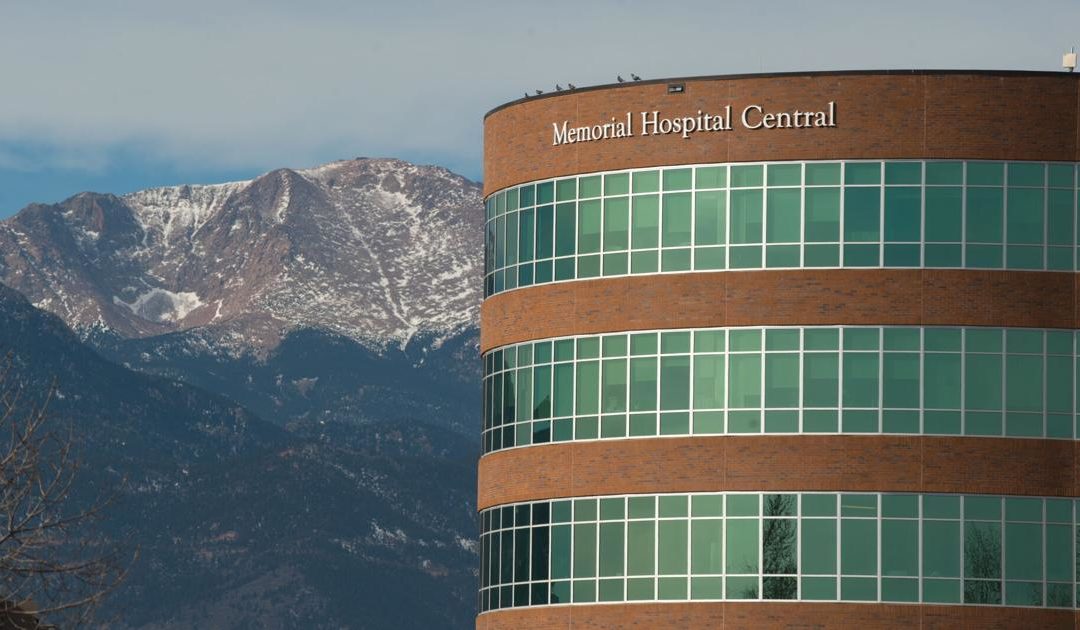Colorado hospitals have re-activated a patient transfer system for the first time since February, raising an early warning about facilities’ capacity as COVID-19 cases and hospitalizations continue to increase.
The Combined Hospital Transfer Center stood up last year to help coordinate moving patients across facilities statewide. It sets up a “‘transfer partnership’ between rural and independent hospitals and urban hospitals/health systems,” the Colorado Hospital Association said Friday, to give smaller hospitals a release valve should their capacity become strained.
“Some hospitals in the state have started to report capacity and staffing concerns with the current and projected case levels,” the association said.
The system was last activated in November, when COVID-19 hospitalizations reached unprecedented levels. It stood down in February, as cases and hospitalizations steadily dropped and the vaccine began to roll out. There has been little threat to statewide hospitals since then, though facilities in Mesa County said their capacity was nearly exhausted during their surge in late June and early July.
But the situation in Colorado has worsened significantly over the past month. According to state data, all but 12 of Colorado’s counties have high rates of transmission over the past two weeks. The average number of cases reported every day over the past week has fallen by about 100 over the past few days, but cases are still more elevated than at any point since May.
Though they’re still not even at half of the November highs, hospitalizations have consistently crept up. As of Thursday, 682 Coloradans were hospitalized with confirmed COVID-19, the most since Jan. 24. Another 106 patients are suspected COVID-19 cases, according to data published by the state Department of Public Health and Environment.
Last week 807 people were admitted to hospitals in Colorado because of the virus. That’s the most since Jan. 10. Sixteen percent of hospitals in the state are now projecting staff shortages in the next week. That number is far below November highs, but there was a marked increase from June and early July.
Gov. Jared Polis said earlier this week that there is no current threat to the state’s hospital capacity. But he also said there has been no change in the upward direction of hospitalizations.
Darlene Tad-y, the hospital association’s vice president of clinical affairs, said in the group’s press release that it is unclear “how large this surge may be or how long it may last.”
“Fortunately, there is more that we can do to change the course of this current surge,” Tad-y said. “The rising hospitalizations are largely preventable, as vaccines have been proven to protect Coloradans from severe illness and hospitalization from COVID-19, including the delta variant.”
State researchers who produce regular COVID-19 projections said last month that hundreds of hospitalizations could be prevented over the next three months if the state stepped up its vaccination rate.
According to UCHealth’s website, which tracks hospitalizations within the organization statewide, 221 people are currently hospitalized within the system, the highest number since January.
Cara Welch, spokeswoman for the hospital association, said it was “probably fair now to say that all of our hospitals are at some level managing capacity.” That could include declining incoming transfers or leaning more heavily on shipping patients out. It could also mean suspending elective procedures, a move that hospitals nationwide enacted in spring 2020 to keep beds open.
Welch said some Colorado hospitals are “postponing some procedures” that would require subsequent hospitalizations.
Hospitalizations have long been Polis’ preferred metric to determine when the state should step in to guide a uniform COVID-19 response. He’s resisted instituting any other orders and has consistently defended that position by pointing to stable hospital capacity figures.
Adult hospitals are not the only facilities facing growing caseloads. Children’s Hospital Colorado said last week that an unprecedented summer spike in RSV, a respiratory illness, had jumped its normal volume significantly.
This content was originally published here.

